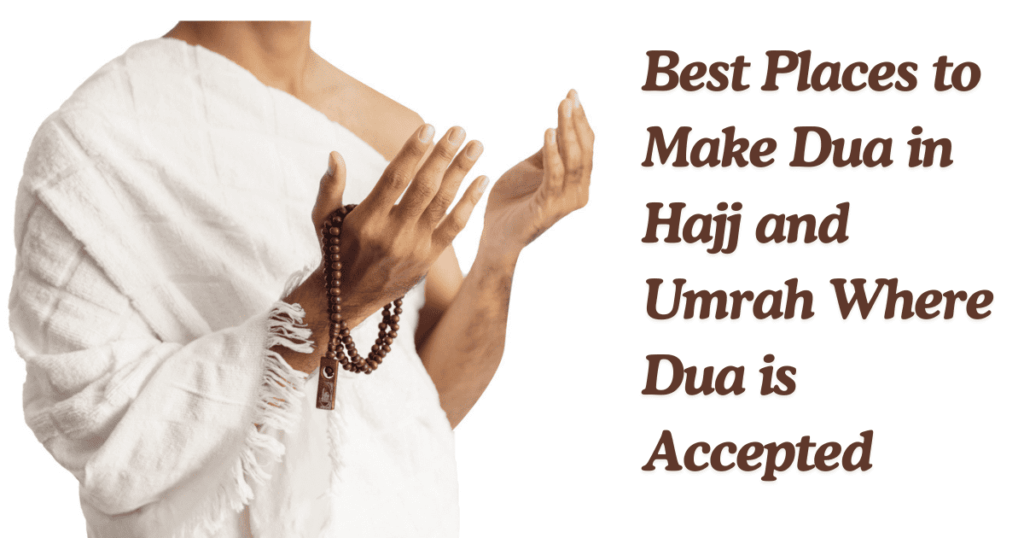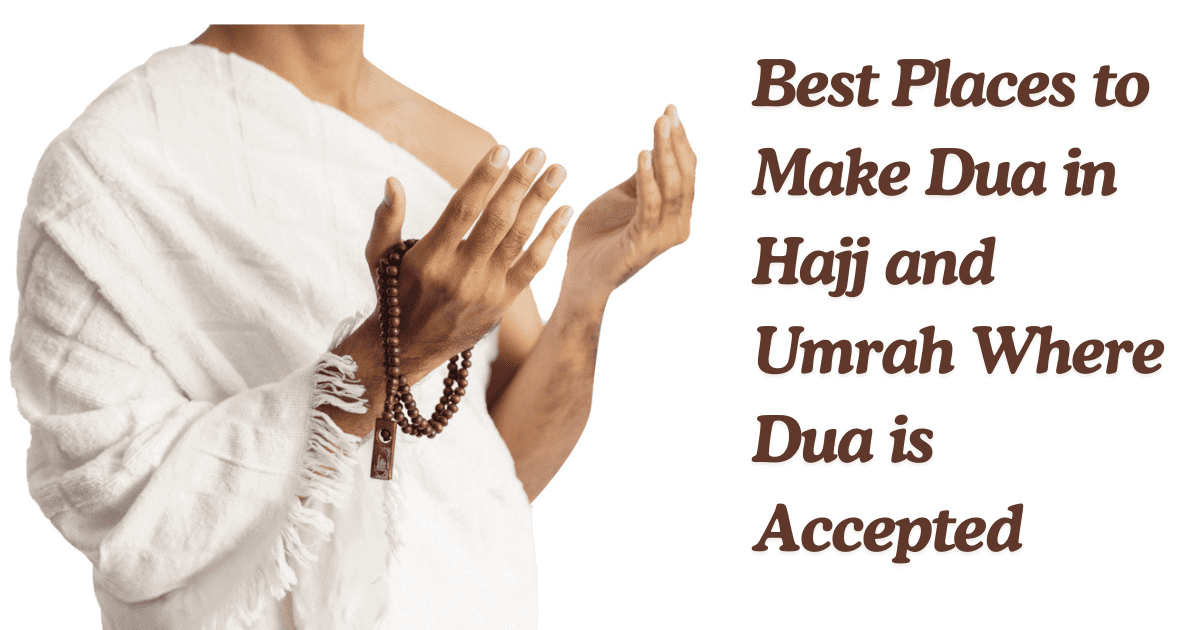Blog
complain to allah, easy way to do umrah, easy way to perform umrah, guide to perform umrah, hajj and umrah duas, how to do umrah, how to do umrah in makkah, how to perform umrah, how to perfrom umrah, how to umrah video, need to know before umrah, questoins and answers about umrah, umrah, umrah guide, umrah step by step in english, umrah to makkah, umrah to mecca vlog, what to do for umrah, what to take on hajj
pdfislamicdua
0 Comments
Best Places to Make Dua in Hajj and Umrah Where Dua is Accepted

Best Places to Make Dua in Hajj and Umrah Where Dua is Accepted
During Hajj and Umrah,these are the Best Places to Make Dua Where Dua is Accepted:
Maqam Ibrahim:
This is the stone platform where Prophet Ibrahim(PBUH) stood while constructing the Kaaba. It holds immense significance as a symbol of faith and dedication to Allah’s command.
Hijr Ismail:
The Hijr Ismail is a space adjacent to the Kaaba, traditionally believed to be the burial site of Hajra and her son Ismail. Pilgrims often pause here for reflection and prayer, honoring the family’s profound connection to the sacred sanctuary.
Mountain of Mercy (Jabal al-Rahmah):
Situated within the confines of Makkah, this mountain holds deep spiritual significance as the location where Prophet Muhammad (P.B.U.H) delivered his farewell sermon during his final Hajj. It is a place of mercy and divine blessings, where pilgrims gather in contemplation and supplication.
Plain of Arafat:
A vital part of the Hajj pilgrimage, the Plain of Arafat is where pilgrims stand in collective prayer, seeking forgiveness and divine mercy. It is believed that supplications made here are particularly potent, as the Prophet Muhammad (P.B.U.H) delivered his farewell sermon in this sacred space.
Well of Zamzam:
Located near the Kaaba, the Well of Zamzam holds a special place in Islamic tradition as a source of blessed water miraculously provided to Hagar and Ishmael. Pilgrims often drink from its waters and offer prayers for healing, sustenance, and guidance.
Masjid e Nabvi (Mosque of the Prophet):
Situated in Madinah, the Masjid e Nabvi is the resting place of Prophet Muhammad (P.B.U.H) and holds immense significance as a site of spiritual pilgrimage. It is a place where prayers are believed to be readily accepted, offering solace and spiritual rejuvenation to visitors.
These are some Places Where Dua Is Accepted During Hajj & Umrah and seeking blessings during their journey of faith.
Dua’s for Hajj and Umrah
Here are essential supplications (Duas) to ensure safety and blessings during your travels:
- Dua for Beginning the Journey:
- “Allahu Akbar, Allahu Akbar, Allahu Akbar. Subhanal-lathee sakh-khara lana hadha, wa ma kunna lahu muqrineen. Wa inna ila Rabbina lamunqaliboon. Allahumma inna nas’aluka fi safarina hadha al-birra wa’l-taqwa, wa min al-‘amali ma tarda. Allahumma hawwin ‘alayna safarana hadha watwi ‘anna bu’dahu. Allahumma anta al-saahib fi’l-safar, wal-khaleefah fi’l-ahl.”
- Dua Upon Entering Makkah:
- “Allahumma inni as’aluka ‘ilman naafi’an, wa rizqan tayyiban, wa ‘amalan mutaqabbalan.”
- Dua at the Kabba:
- “Rabbana atina fi’d-dunya hasanatan wa fi’l-akhirati hasanatan wa qina ‘adhaban-nar.”
- Dua at Mount Arafat:
- “La ilaha illallah wahdahu la sharika lah, lahul mulku wa lahul hamdu, wa huwa ‘ala kulli shay’in qadir.”
- Dua at the Plain of Muzdalifah:
- “SubhanAllah, walhamdulillah, walaa ilaaha illallah, wallahu akbar, wala hawla wala quwwata illa billahil-‘aliyyil-‘azeem.”
- Dua at the Well of Zamzam:
- “Allahumma inni as’aluka ‘ilman naafi’an, wa rizqan tayyiban, wa shifa’an min kulli da.”
- Dua for Safe Return Home:
- “Rabbana hablana min azwajina wa dhurriyyatina qurrata a’yunin waj’alna lil muttaqeena imama.”














Post Comment